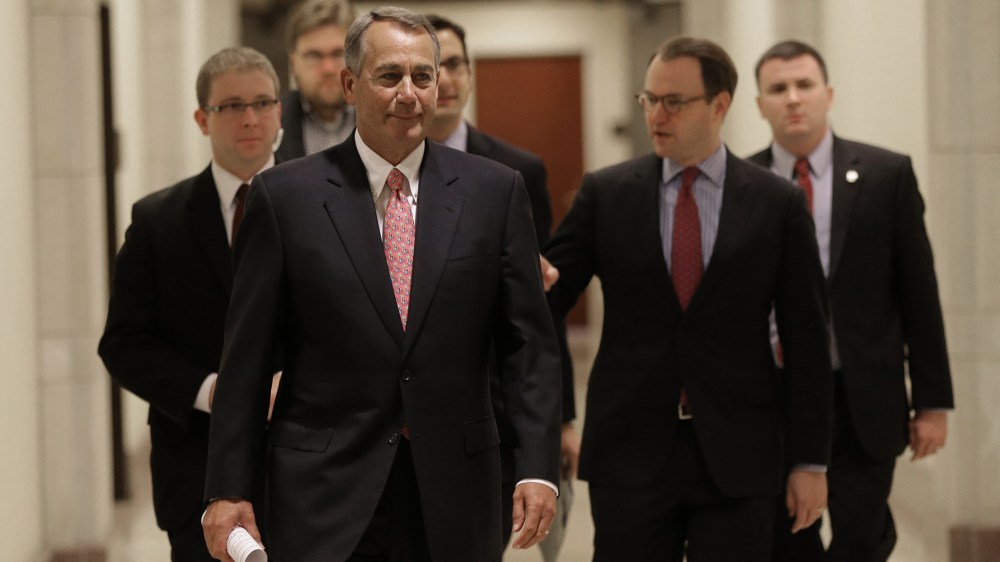The first big fight of the new GOP-controlled Congress began before 2015 even started.
Shortly prior to Christmas recess, Republicans introduced a new change to the House rules that would alter the way the cost of tax legislation is calculated, potentially changing the price tag for one of their biggest priorities in the new Congress. What’s more, GOP leaders are reportedly prepared to dump the House’s official scorekeeper to help make it happen — a move that Harry Reid’s spokesman Adam Jentleson warned could turn it “from the impartial referee it’s always been into a right-wing ideological organization.”
The GOP’s proposed change, known “dynamic scoring,” is the kind of wonky issue that rarely draws an audience outside of the Beltway, but which Republicans have rallied behind for decades. Typically, the official cost of proposed legislation doesn’t factor in the impact that it would have on the broader economy. The rationale is that broader macroeconomic variables are difficult to predict, and outcomes can vary widely depending on the assumptions made.
Republicans believe that it’s unrealistic and inaccurate to assume that legislation will have no effect on the broader economy — particularly when it comes to the tax cuts that are the GOP’s raison d’être. Tax cuts, they argue, can stimulate broader economic growth and increase revenue — and that should be factored into a proposal’s official cost. Calling it “reality-based scoring,” Rep. Paul Ryan is a major proponent. And dynamic scoring could have an outsized impact on the major tax legislation that he hopes to push as the incoming chair of the House Ways and Means Committee.
Under pressure from conservatives to take up the issue, the GOP has already put dynamic scoring on the fast track for the next Congress: In late December, the House GOP proposed a change to the rules that would require the two budget scorekeepers in Congress — the Congressional Budget Office (CBO) and the Joint Committee on Taxation (JCT) — to incorporate dynamic scoring when estimating the official cost of major tax legislation, according to The Wall Street Journal.
RELATED: Can Wall Street reform survive 2015?
When the JCT used the approach to evaluate outgoing Ways and Means Chair Dave Camp’s tax plan, it found it would raise between $50 billion to $700 billion in additional revenue. That could make it easier for Republicans to cut taxes further while claiming such proposals are revenue-neutral, WSJ‘s David Wessel points out.
Some conservatives are also lining up against the current CBO director, Doug Elmendorf, arguing that his cost estimates for Obamacare are overly rosy and that the office needs a bigger proponent of dynamic scoring. Bloomberg’s Dave Weigel recently reported that Republicans have already decided against reappointing Elmendorf as CBO director, who’s appointed by leaders in both house.
Both moves have alarmed Democrats, who warn that Republicans will try to use dynamic scoring to mask the real cost of tax cuts and other GOP priorities. “Are Republicans trying to cook the books so they can hock tax cuts for the rich as something other than the system-rigging, anti-middle class budget busters they actually are?” Reid’s spokesman Jentleson wrote, shortly after Bloomberg’s report on Elmendorf.











